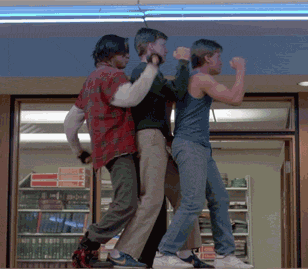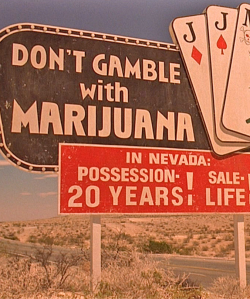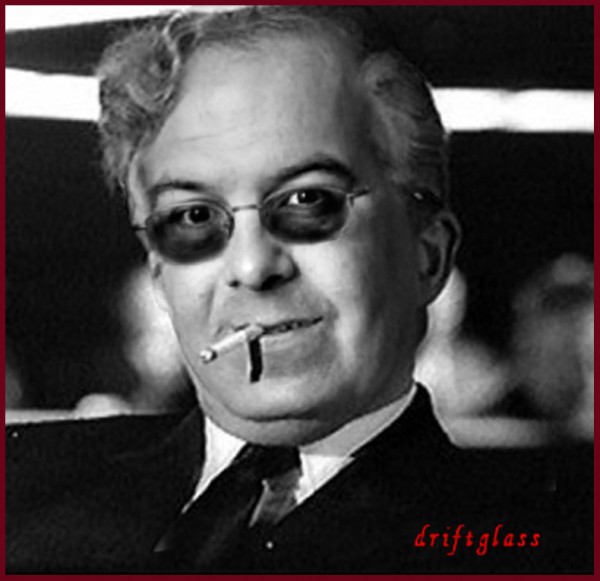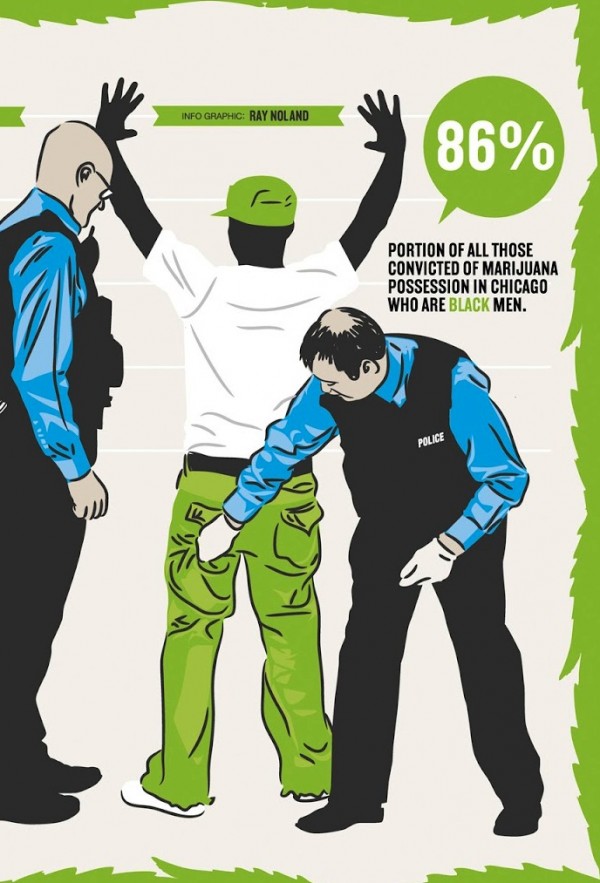Artwork via DRIFTGLASS
DAVID BROOKS: For a little while in my teenage years, my friends and I smoked marijuana. It was fun. I have some fond memories of us all being silly together. I think those moments of uninhibited frolic deepened our friendships. […] But then we all sort of moved away from it.most of us developed higher pleasures. Smoking was fun, for a bit, but it was kind of repetitive. Most of us figured out early on that smoking weed doesn’t really make you funnier or more creative (academic studies more or less confirm this). We graduated to more satisfying pleasures. The deeper sources of happiness usually involve a state of going somewhere, becoming better at something, learning more about something, overcoming difficulty and experiencing a sense of satisfaction and accomplishment. […] I think we had a vague sense that smoking weed was not exactly something you were proud of yourself for. It’s not something people admire. We were in the stage, which I guess all of us are still in, of trying to become more integrated, coherent and responsible people. This process usually involves using the powers of reason, temperance and self-control — not qualities one associates with being high. MORE
VANITY FAIR: For a little while in my teenage years, my friends and I read David Books columns. It was fun. I have some fond memories of us all being uninformed and feeling superior together. I think those moments of uninhibited self-righteousness deepened our friendships. But then we all sort of moved away from it. I don’t remember any big group decision that we should give up reading David Brooks. It just sort of petered out, and, before long, we were scarcely reading him. We didn’t give it up for the obvious reasons: that his ideas were repetitive and self-evident; that citing a Brooks column at a dinner party is a good way to get yourself mocked; that young people who read Brooks go on to join the College Republicans and perform patronizing monologues about “elitism” that are themselves elitist. MORE
GARY GREENBERG: Now that he’s gone and outed  himself, I guess I’m free to tell the secret. I smoked pot with David Brooks. I was one of that “clique” with whom he had “those moments of uninhibited frolic.” […] He wrote in his column about the time he got high during lunch and then “stumbled through” a presentation in English class. Too bad he didn’t go into the details. But I remember it pretty well. It was senior year. We all had to give a 10-minute talk about one of the leitmotifs in Lord Jim. We’d both chosen “one of us,” an idea that was totally Dave’s. He’d gotten after we smoked some insane Thai stick and went into Philly to see “Freaks” at the TLA.[…]
himself, I guess I’m free to tell the secret. I smoked pot with David Brooks. I was one of that “clique” with whom he had “those moments of uninhibited frolic.” […] He wrote in his column about the time he got high during lunch and then “stumbled through” a presentation in English class. Too bad he didn’t go into the details. But I remember it pretty well. It was senior year. We all had to give a 10-minute talk about one of the leitmotifs in Lord Jim. We’d both chosen “one of us,” an idea that was totally Dave’s. He’d gotten after we smoked some insane Thai stick and went into Philly to see “Freaks” at the TLA.[…]
We got high at lunch. This was back when you could smoke at school. Cigarettes, I mean, but naturally that wasn’t all we smoked. Smokers had to go to an area set up outside the cafeteria, hemmed in by the other wings of the building, sort of like a cell block. Architects must have been stoned or something, or maybe that was back when we didn’t care so much about smoking, but anyway they put the air intake for the second floor in a corner of the cell block. So we were smoking this joint of Jamaican over in that corner and Dave got the bright idea to blow the smoke into the register. “That’ll make everyone up there one of us!” he said. And sure enough when we went up to class the whole floor stank and the vice-principal was hustling up and down the hallway, wrinkling his nose like a bloodhound trying to figure out where the smell was coming from, and then he went into the boys’ room and dragged out one of the only two black boys at Radnor High, yelling at him for smoking pot in school.
 I remember the guilty look on Dave’s face when he saw Mr. Santangelo with the kid by the collar. Later on, he told me that he was tempted to confess, but he also happened to know that that boy did smoke pot, that he was a full-on stoner, so if he got in a little trouble, it might be good for him. When I read today that Dave thinks that “not smoking, or only smoking sporadically gave you a better shot at becoming a little more integrated and interesting,” while “smoking all the time seemed likely to cumulatively fragment a person’s deep center,” I thought about that boy and wondered if getting kicked out of school had helped him hold together his deep center, and if his going to juvy was the kind of subtle discouragement that Dave thinks governments should engage in when it comes to the “lesser pleasures.” I suppose he thought he was doing the kid a favor by letting him take the rap. MORE
I remember the guilty look on Dave’s face when he saw Mr. Santangelo with the kid by the collar. Later on, he told me that he was tempted to confess, but he also happened to know that that boy did smoke pot, that he was a full-on stoner, so if he got in a little trouble, it might be good for him. When I read today that Dave thinks that “not smoking, or only smoking sporadically gave you a better shot at becoming a little more integrated and interesting,” while “smoking all the time seemed likely to cumulatively fragment a person’s deep center,” I thought about that boy and wondered if getting kicked out of school had helped him hold together his deep center, and if his going to juvy was the kind of subtle discouragement that Dave thinks governments should engage in when it comes to the “lesser pleasures.” I suppose he thought he was doing the kid a favor by letting him take the rap. MORE
MATT TAIBBI: The Brooks column is particularly infuriating because in just a few hundred words it perfectly captures why marijuana needs to be legalized. Here’s this grasping, status-obsessed yuppie who first admits that that he smoked an illegal drug without consequence in his youth, then turns around and tells us, as a graying and bespectacled post-adult, that it would be best if the drug remained illegal for the masses. Would David Brooks feel the same way about drug laws if he was one of the hundreds of thousands of Americans arrested in weed-related incidents every year (it was over 700,000 people in 2012)? If he’d been prevented from getting a student loan or getting a state job because of such a bust? If he’d lost a professional license, or had his property seized, or even had a child taken away from him? We’ll never know, because by and large, people like David Brooks, or me for that matter, don’t suffer serious consequences for weed arrests. MORE
DAILY BEAST: “Discourage” is an awfully mild word for the reality of pot prohibition in the United States. Under federal law, any possession of marijuana is punishable by up to a year in jail and a fine of $1,000 on the first offense. Multiple offenses after that get higher fines, and longer prison terms. If you’re a dealer or trafficker, punishments range from 5 years in prison and a $250,000 fine, to life in prison and a $4 million in fines. But it’s not just that Brooks understates the extent to which our government “discourages” pot use, he also doesn’t seem to have any idea of how these laws play out in the real world. White, middle-class teenagers aren’t the people who suffer the most from marijuana prohibition. That distinction goes to black teenagers—and young men in particular—who are arrested by the hundreds of thousands at a rate that’s wildly disproportionate to their actual use. Despite roughly equal usage rates, notes the American Civil Liberties Union, blacks are almost four times more likely to be arrested for marijuana use than whites. MORE
RELATED: In his column, “Weed: Been There. Done That,” Brooks argues that, as a society, we should decide which cultural pleasures we want to encourage or discourage, and regulate accordingly. He, like many, smoked marijuana in his younger days. In fact, he writes, “It was fun. I have some fond memories of us all being silly together. I think those moments of uninhibited frolic deepened our friendships.” Then he grew up. And he talks about that for much of the rest of the post, before concluding with this:
I’d say that in healthy societies government wants to subtly tip the scale to favor temperate, prudent, self-governing citizenship. In those societies, government subtly
encourages the highest pleasures, like enjoying the arts or being in nature, and discourages lesser pleasures, like being stoned.
And that’s all Brooks has to say about the way in which the government has regulated pot for the past 40 years, and what repercussions that regulation may have had. To those who, like Brooks, either missed or chose to ignore the not-so-subtle criminal repercussions of the War on Drugs, here are the highlights:
People are jailed, fired, and barred from voting for marijuana. Under federal law and the laws of most states, marijuana possession, distribution, conspiracy, and other related offenses are crimes. They carry jail time. They go on your criminal record. They carry all of the collateral consequences that accompany a host of other crimes in this country, including as a barrier to employment and voting, revocation of professional licenses, loss of educational financial aid, lost access to public benefits and other food stamps, and can even bar the adoption of a child. […]
Blacks are four times more likely to be arrested for marijuana. Brooks smoked pot. Heads of state have smoked pot. To many in America’s privileged class, their marijuana phase is just a blip in their life history, which did nothing to obstruct their life path or career aspirations. They are not the ones who suffer from marijuana criminalization. If you’re black in America, you’re four times more likely to be arrested for marijuana, even though all races use marijuana at the same rate. In some states, the disparity is as high as 8 to 1. The overwhelming majority of these arrests are for possession. If you’re poor and black, or if you live in a particular inner city neighborhood, your arrest is a near certainty. […]
Police make more arrests for marijuana than for violent crime. More than 650,000 people were arrested in 2011 just for marijuana possession. To put that into context, that is more people than are arrested for violent crimes in the same year. This doesn’t just mean that the individuals arrested suffer the criminal consequences. It means police resources are being funneled overwhelmingly not just to drug crimes, but to marijuana crimes. MORE
 NEW YORKER: According to a report by the Philadelphia Police Department, the younger Leon had a sideline: on the afternoon of July 10, 2012, he allegedly sold twenty dollars’ worth of marijuana to a confidential informant, on the porch of his parents’ home. When the informant requested two more deals the next week, the report said, he made the same arrangements. Both were for twenty dollars, purchased with marked bills provided by police.Around 5 p.m. on July 19th, Leon, Sr., was in his bedroom recovering from surgery when he was startled by a loud noise. “I thought the house was blowing up,” he recalls. The police “had some sort of big, long club and four guys hit the door with it, and knocked the whole door right down.” swat-team officers in riot gear were raiding his home. One of the officers placed Leon, Jr., in handcuffs and said, “Apologize to your father for what you’ve done.” Leon, Jr., was taken off to jail, where he remains, awaiting trial. The police returned about a month after the raid. Owing to the allegations against Leon, Jr., the state was now seeking to take the Adamses’ home and to sell it at a biannual city auction, with the proceeds split between the district attorney’s office and the police department. All of this could occur even if Leon, Jr., was acquitted in criminal court; in fact, the process could be completed even before he stood trial. MORE
NEW YORKER: According to a report by the Philadelphia Police Department, the younger Leon had a sideline: on the afternoon of July 10, 2012, he allegedly sold twenty dollars’ worth of marijuana to a confidential informant, on the porch of his parents’ home. When the informant requested two more deals the next week, the report said, he made the same arrangements. Both were for twenty dollars, purchased with marked bills provided by police.Around 5 p.m. on July 19th, Leon, Sr., was in his bedroom recovering from surgery when he was startled by a loud noise. “I thought the house was blowing up,” he recalls. The police “had some sort of big, long club and four guys hit the door with it, and knocked the whole door right down.” swat-team officers in riot gear were raiding his home. One of the officers placed Leon, Jr., in handcuffs and said, “Apologize to your father for what you’ve done.” Leon, Jr., was taken off to jail, where he remains, awaiting trial. The police returned about a month after the raid. Owing to the allegations against Leon, Jr., the state was now seeking to take the Adamses’ home and to sell it at a biannual city auction, with the proceeds split between the district attorney’s office and the police department. All of this could occur even if Leon, Jr., was acquitted in criminal court; in fact, the process could be completed even before he stood trial. MORE
PHILLY MAG: The only reason marijuana is still illegal is there is too much money to be made in criminalizing it. Money for the cops. Money for the lawyers. Money for the prison guards. Money for for-profit private prisons. It doesn’t get any more cynical than that. Locking up people in cages for fun and profit. Every year, 750,000 Americans are arrested for marijuana. That’s way more people than are arrested every year for murder, manslaughter, forcible rape, robbery and aggravated assault combined. Since 1990, more than 7.2 million Americans have been arrested on marijuana charges. That’s more than the populations of Alaska, Delaware, the District of Columbia, Hawaii, Montana, North Dakota, South Dakota, Rhode Island, Vermont and Wyoming combined. Almost 90 percent of those arrests were for simple possession. Not growing it. Not selling it. Just having it. That’s insane. MORE


